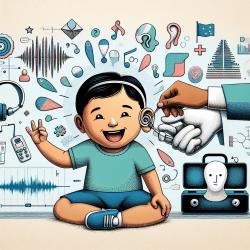Introduction
As a passionate advocate for children's development, it is crucial to explore innovative therapies that can enhance their social and emotional well-being. One such promising approach is psychodrama group therapy, a method rooted in improvisational theater, which allows participants to enact real-life scenarios to gain insights and develop coping strategies. The recent systematic review titled Psychodrama Group Therapy for Social Issues: A Systematic Review of Controlled Clinical Trials provides compelling evidence of its effectiveness across various social issues.
Key Findings from the Systematic Review
The systematic review analyzed 14 randomized controlled trials (RCTs) and one quasi-RCT involving 642 participants across diverse settings, including schools and clinical environments. The studies spanned countries like Turkey, the USA, Finland, and others, highlighting psychodrama's global applicability.
Key findings indicate that psychodrama effectively addresses a range of issues, including:
- Emotional Regulation: Participants showed significant improvements in managing emotions, which is vital for children dealing with behavioral challenges.
- Social Skills Development: The enactment of social scenarios helps children enhance their interpersonal skills, leading to better peer relationships.
- Self-Esteem and Confidence: By playing different roles, children gain self-awareness and confidence, crucial for their overall development.
Implications for Practitioners
For practitioners in speech language pathology and related fields, integrating psychodrama techniques can offer a dynamic and engaging therapeutic approach. Here are some practical steps to consider:
- Incorporate Role-Playing: Use role-playing to help children express emotions and explore different perspectives, enhancing their language and social skills.
- Create Safe Spaces: Ensure a supportive environment where children feel comfortable expressing themselves without judgment.
- Focus on Action: Encourage active participation and dramatization to foster deeper understanding and emotional processing.
Encouraging Further Research
While the review provides a strong foundation, further research is needed to explore psychodrama's long-term effects and its integration with other therapeutic modalities. Practitioners are encouraged to collaborate on research initiatives to expand the evidence base and refine psychodrama techniques for specific populations.
Conclusion
Psychodrama group therapy presents a unique opportunity to enhance therapeutic outcomes for children. By adopting this innovative approach, practitioners can empower children to navigate social challenges, build resilience, and thrive in their personal and academic lives. For a deeper dive into the research, I highly recommend reading the original paper: Psychodrama Group Therapy for Social Issues: A Systematic Review of Controlled Clinical Trials.










